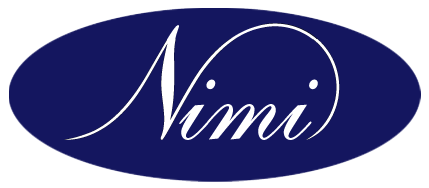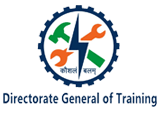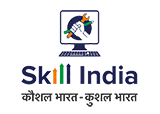Activities
| 1 | Development of Instructional Material |
| 2 | Training for developing IMPs |
| 3 | Development of Question Bank |
| 4 | Translation of IMPs in Hindi and other Regional Languages |
| 5 | Awareness Training for Instructors |
| 6 | Online Learning - Digitization of IMP and preparation of eLearning module for IMP |
| 7 | Development of Video Instructional Program |
| 8 | Development of Terminal Competency |
| 9 | Media Development Training |
| 10 | Printing, publishing and Marketing of the Products |
| 11 | Satellite based Distance Learning Programme |
- PMKVY
- New age courses
- Affiliation for new trades
- Affiliation for new special cases
- CITS
- CTS
- ADIT
- PMKVY
- TTT
- Staff Training
- Student Training
- Short Term Courses
- OLCCC
- Fee link for CBT
Instructional Material
There is a holistic approach followed in the development of Instructional material at NIMI. It caters to the needs of the trainers, the trainees and the Management. It consists of five components all Inter-related.
| 1 | Trade Practical | Book |
| 2 | Trade Theory | Book |
| 3 | Assignment/Book | Book |
| 4 | Instructors Guide | Book |
| 5 | Wall Charts & Transparencies | Teaching Aids |
The Instructor’s guide
The Instructor’s Guide contains
| 1 | The Key/Answers to the Test items contained in the assignment/Test Book. This helps the Instructor to evaluate the Assignment/Test given. | Book |
| 2 | Resource Planning sheet. This helps the Instructor to plan and provide the Raw material required for a job, the machines, the hand tools required for a particular exercise and the teaching aids for class room lecture. | Book |
| 3 | The consolidated Bill of Material. This helps both the Instructor and the Management to plan procurement of raw material. | Book |
| 4 | The Schedule of Instruction. This helps the Instructor to cover the syllabus systematically and in time. | Book |
The main thrust of Vocational Training is to impart skill training to enable the trainee to achieve proficiency to do a job. The development of Instructional Material starts in the identification of skills to be acquired and the designing of necessary exercises to attain the same. The practical book is the compilation of all the exercise developed to attain the proficiency expected at the end of the year as per the NCVT syllabus. The practical book are more illustrative with at least 1500 drawing per title. The practical book is an essential tool for an Instructor to plan his demonstration and an effective tool for the Management to keep track of the coverage.
Trade Theory is compilation of lesson topics which contains the necessary knowledge required to attain proficiency. As skill development is gradual from simple to complex lessons for a particular topic will be spread over the entire book. The illustrations are many. At least 1200 drawings at an average are found in a single title. The Theory books keeps both the Instructor and the trainee in the teaching and Learning process. The assignment/Test Book: The Assignment/Test Book is written to help the Instructor in the direction of continuous evaluation, so as to ensure steady progress at every stage of training.
The Assignment/Test Book is written to help the Instructor in the direction of continuous evaluation, so as to ensure steady progress at every stage of training.
The Wall Charts and Transparencies are prepared in Bi-color (normally) for selected topics to enable the Instructor to make his presentation effectively. The wall charts and Transparencies are made in a such a way that the titles are not displayed in the Wall Chart/Transparency. The Instructor is required to write the name of parts (titles) etc in non-permanent ink and explain. He can erase them and use the same chart for testing the knowledge attained. Thus, it is designed for Interactive Teaching Learning situation.
Evaluation, that too continuous, is an essential process to ensure steady progress in training. The Question Bank developed in NIMI includes Questions in three levels, namely Level I, II & III
Level I Question asked from fact knowledge
Eg: Questions asked for Identifications of parts, names, definitions, standards, symbols, units, properties, specifications, recalling, materials, safety, formulas, compositions, elements, rules and factors etc.,
Level II Question asked from principle and transfer knowledge
Eg: Questions asked for comparisons, differences, principles, advantages, disadvantages, methods, functions, calculations, relations, causes and effective, applications, selections, uses, purpose, reasons, benefits, necessaries for operations, sequences, settings, merits, preparations, features, development, value, losses and procedures etc.,
Level III Question asked for problem solving
Eg: Questions asked for problems, defects, remedies, solutions, situations, judgements, evaluations, failures, rectifications, analyzing, causes and effects in solving problems, repairs, faults, adjustments, prevention, and effect etc.,
Question Bank has been developed in English for the following Trades
Fitter | Turner | Machinist | Welder | Electrician | Mechanic Diesel
Instructors from various institutes of the Nation are trained periodically, on the methodology of imparting Training using NIMI IMPS
Digitizing of instructional materials to facilitate simplify complex content with navigational features and internal search for better understanding. Development of e-learning content with 2D and 3D animations, videos, 2D and 3D illustrations for access to the NIMI web portal to enable technology-enhanced learning.
The experts in the field of Vocational training from various industries, Industrial training institutes and under DGE&T institutions and other organizations are trained to develop the instructional materials for different trades in a manner which will help the craftsman/apprentices in assimilating the subjects effectively during the stipulated period of training. They work as Media Development Committee members and develop IMPs.
Various stages in Development of Instructional materials

A well-defined behavioral statement gives the trainees a clear goal. Trainees will feel that they know where they are going and what they have to achieve.So, a set of Action Verbs are used in the development of Instructional Materials Some example action verbs are given below.
| Action Verbs in Practical | Action Verbs in Lesson | Action Verbs to be avoided |
|---|---|---|
| Practice | Define | Learn |
| Test | State | Know |
| Measure | Express | Understand |
| Check | Explain | Study |
| Carryout | Describe | Listen |
| Identify | Enumerate | Think about |
| Prepare | Narrate | Familiarize |
| Determine | Illustrate | Ensure etc. |
| Create | Distinguish | |
| Develop | Differential | |
| Make | Compare | |
| Drill | Determine | |
| Cut | ||
| Check | ||
| Inspect | ||
| Operate | ||
| Connect | ||
| Draw | ||
| Wire up | ||
| Set up | ||
| Adjust | ||
| Manufacture | ||
| Fabricate | ||
| Start | ||
| Run | ||
| Reverse | ||
| Select | ||
| Record | ||
| Design | ||
| Use | ||
| Repair | ||
| Separate | ||
| Integrate | ||
| Add | ||
| Dismantle | ||
| Assemble | ||
| Service | ||
| Manipulate | ||
| Overhaul | ||
| Mark the Layout | ||
| Plot the graph, etc |





